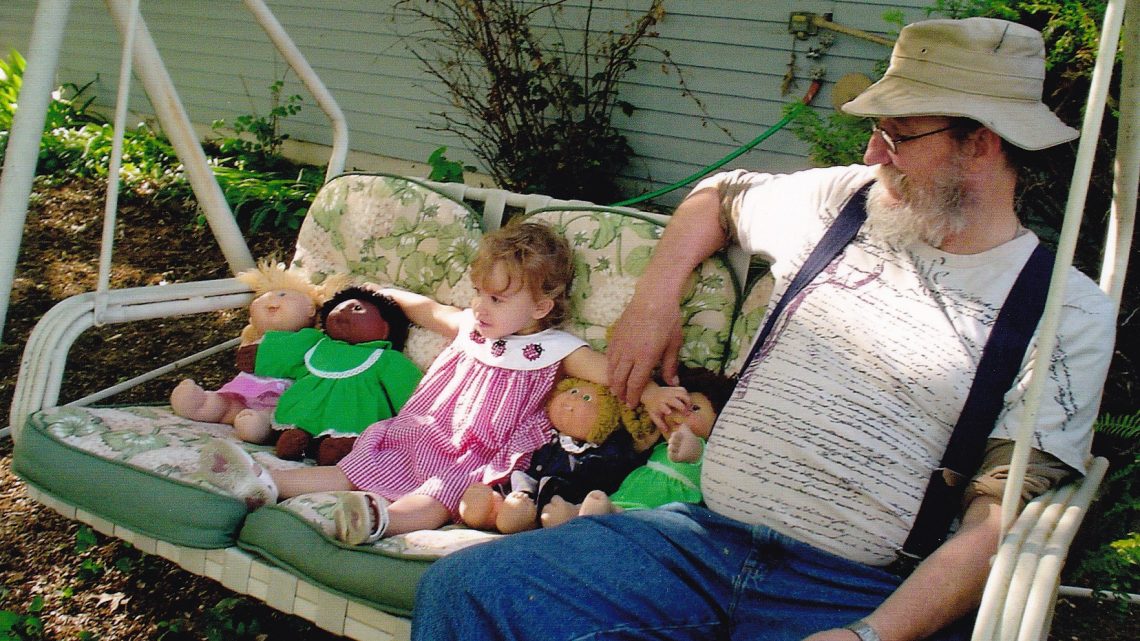People have regularly been asking how I’m doing since my husband Dean passed away a couple of months ago. That is really difficult to answer. If I say “great”, do I sound callous? If I say “not so great”, do I sound weak? I understand the question is posed by friends who are truly concerned about me and want to convey that they really do care, and I do my best to acknowledge their inquiries and answer the best I can at the time. In truth though, my emotions are rather sketchy these days. But perhaps it’s good that they ask, so I can take that little self inventory and make sure I am on the path of mental good health, and not headed for the opposite, which would be a sinkhole of depression.
Today and a few other times though I was confronted by a different kind of response to Dean’s passing. It wasn’t in the form of a question, which relieved me of the task of an impromptu self-inspection. This neighbor of mine simply stated how much she missed seeing Dean sitting out on the swing in our front yard, greeting all the passersby with a wave or an invitation to chat. This simple acknowledgement of someone else missing my man really warmed my heart. It validated the many times I have felt a sudden gush of emotion when I remember something about Dean that I miss.
Without realizing it, my neighbor had turned a sympathetic, caring comment into an empathetic, supportive acknowledgment. I must remember her approach when confronted with others in the throes of grief. It was simple enough in practice, but the concept was pure genius.
From now on, I’ll not be afraid to address someone’s ugly emotions directly. But will let it be known that I feel their pain as well–never exactly the same, but at least in a similar way. After all, we humans can only carry another’s load with them, not for them. Only God can truly lift that burden from their shoulders. But we can reduce its weight by lifting it together. Sharing it makes it so much lighter.










